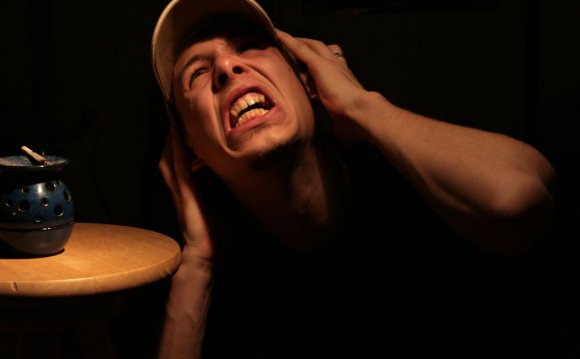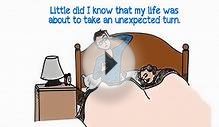
TinnitusCauses perception of sound in one or both ears or in the head, in the absence of any external sound. It is often referred to as "ringing in the ears", although some people hear hissing, roaring, whistling, chirping, or clicking. The ringing can be intermittent or constant-with single or multiple tones-and its perceived volume can range from subtle to shattering.
It is estimated that in U.S. alone, over 50 million experience tinnitus to some degree. Of these, nearly 25% have severe enough tinnitus and about 5% are so seriously debilitated that they cannot function on a "normal, " day-to-day basis. The population of affected appears to contain more number of "intellectuals", in sedentary occupation.
Tinnitus Causes
The exact physiological causes of tinnitus are not known to science. There are, however, several likely sources, all of which are known to trigger or worsen tinnitus.
- 1. Noise-induced hearing loss - Exposure to loud noises can damage and even destroy hair cells, called cilia, in the inner ear. Once damaged, these hair cells cannot be renewed or replaced.
- 2· Wax build-up in the ear canal - The amount of wax ears produce varies by individual. Sometimes, people produce enough wax that their hearing can be compromised or their tinnitus can seem louder.
- 3· Ear or sinus infections - Many people, including children, experience tinnitus along with an ear or sinus infection. Generally, the tinnitus will lessen and gradually go away once the infection is healed.
- 4· Jaw misalignment - Some people have misaligned jaw joints or jaw muscles, which can not only induce tinnitus, but also affect cranial muscles and nerves and shock absorbers in the jaw joint. Many dentists specialize in this temporomandibular jaw misalignment and can provide assistance with treatment. On the other hand, tinnitus can start by removal of wisdom teeth, (last molars) if cranial nerves in the neighborhood get damaged.
- 5· Cardiovascular disease - Approximately 3 percent of tinnitus patients experience pulsatile tinnitus; they typically hear a rhythmic pulsing, often in time with a heartbeat. Pulsatile tinnitus can indicate the presence of a vascular condition-where the blood flow through veins and arteries is compromised-like a heart murmur, hypertension, or hardening of the arteries.
- 6· Certain types of tumors - Very rarely, people have a benign and slow-growing tumor on their auditory, vestibular, or facial nerves. These tumors can cause tinnitus, deafness, facial paralysis, and loss of balance.
- 7· Certain medications - Some medications are ototoxic-that is, toxic to the ear. Other medications will produce tinnitus as a side effect without damaging the inner ear Ex.- aspirin, quinine and some antibiotics. Effects can depend on the dosage of the medication, can be temporary or permanent.
- 8· Head and neck trauma - Physical trauma to the head and neck can induce tinnitus. Other symptoms include headaches, vertigo, and memory loss.
RELATED VIDEO




 Dance is a type of art that generally refers to movement of the body, usually rhythmic and to music, performed in many different cultures and used as a form of expression, social interaction and exercise or presented in a spiritual or performance setting.
Dance is a type of art that generally refers to movement of the body, usually rhythmic and to music, performed in many different cultures and used as a form of expression, social interaction and exercise or presented in a spiritual or performance setting.







